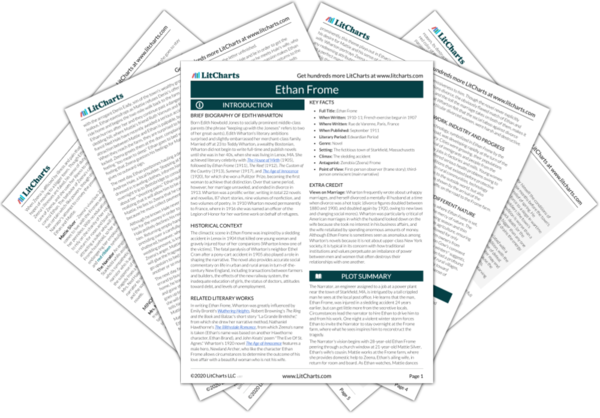In Ethan Frome, Wharton explores the concept of determinism—the idea that human lives are determined by outside forces, including social customs, heredity, environment, history, and laws of nature. For instance, Ethan's life is "determined" in a variety of ways: his desire to become an engineer is thwarted by the moral necessity of returning to Starkfield to care for his dying parents; his plans to leave Starkfield after his marriage are thwarted by the infertility of his farm, which no one wants to buy, and his wife Zeena's "sickliness;" and Ethan's desire to abandon Zeena in favor of Mattie is blocked by the feeling, imbued in him by his New England culture with its Puritan roots, that such an action would be immoral. As a result, Ethan has the sense that he is helpless to affect his own life and, rather than acting, he indulges in his naïve wish that Mattie will always live at the farm without him having to do anything decisive at all.
Despite all these factors, Ethan could act decisively. Other characters in the novel do: Ruth Varnum and Ned Hale kiss secretly even though they aren't yet married; Mr. Hale turns down Ethan's request for an advance because he can't afford it at the time; and Zeena summarily acts to replace Mattie with a new girl. Yet every time Ethan seems on the verge of action, he finds himself facing some obstacle and instead of facing it gives in, all the while blaming the external forces that are thwarting him without ever recognizing his own lack of courage.
Determinism and Free Will ThemeTracker

Determinism and Free Will Quotes in Ethan Frome
"Oh, Ethan!" she cried.
"I don't know how it is you make me feel, Matt. I'd a'most rather have you dead than that!"
"Oh, I wish I was, I wish I was!" she sobbed.











